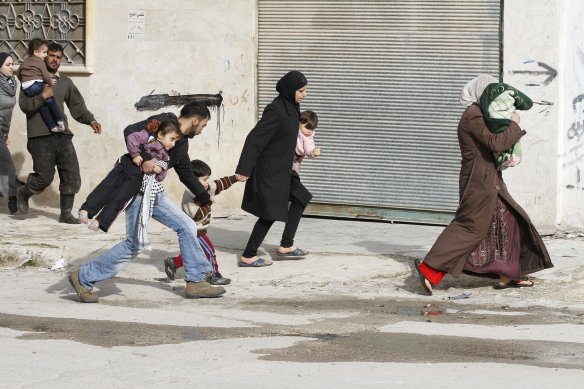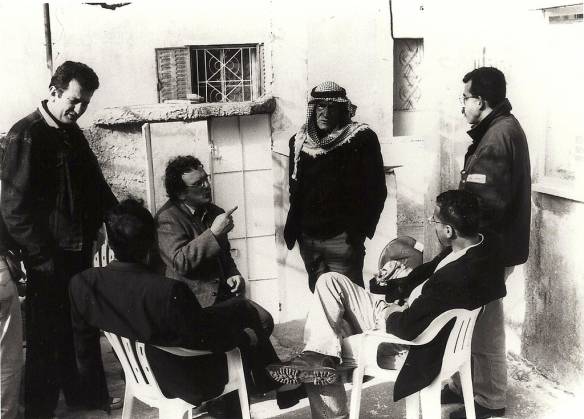It was not until the advances of IS in Syria and Iraq turned into an international security threat that a military intervention was launched in September 2014. A horrendous civil war had then killed tens of thousands Syrian civilians and displaced millions without provoking any similar reaction. In this blog post I reflect on what this tells us about the commitment of major powers to the principle of protecting civilians across borders. Do they really care? And do they agree on its meaning and implications?

Civilians flee from fighting after Syrian army tanks entered the northwestern city of Idlib, Syria in 2012. Photo: Nasser Nouiri via Flickr
A report of the UN Human Rights Commission from 13 August this year describes the humanitarian situation in Syria as follows:
With 6.5 million internally displaced persons and 2.9 million registered refugees, Syria has become the world’s worst humanitarian catastrophe. According to UN agencies, 10.8 million Syrians are in need of urgent humanitarian assistance inside the country, 241,000 people still live under siege and 4.7 million reside in hard-to-reach areas.
Yet, the veto powers of the UN Security Council have not been able to agree on any effective response. This ‘failure’ seems to contradict their repeated statements in the Council on their commitment to the Protection of Civilians in armed conflict (PoC).
Read more at the blog of the Norwegian Centre for Humanitarian Studies.


